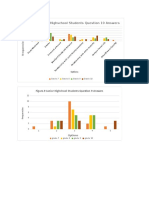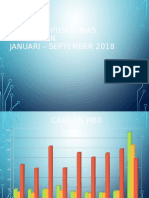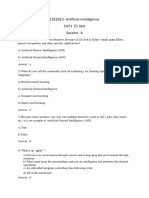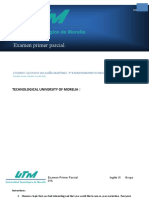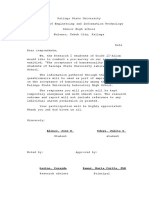The Digital Skills Gap in Europe
Digital technologies are used in many sectors such as farming, healthcare, transport, education, retail, automatics, energy, shipping, logistics, teaching and the information and communications technology industry. The demand for information and communications technology specialists is growing fast.
In the future, 9 out of 10 jobs will require digital skills
.
At the same time, 169 million Europeans between 16 and 74 years – 44% – do not have basic digital skills.
According to the latest Digital Society and Economy Index there are signicant dierences between Member States when it comes to citizens’ digital skills.
Basic digital skills in the EU
44%
of Europeans
do not have basic digital skills
0%10%20%30%40%50%60%70%80%90%100%
P e r c e n t a g e o f i n d i v i d u a l s
L u x e m b o u r g D e n m a r k N e t h e r l a n d s F i n l a n d U n i t e d K i n g d o m S w e d e n G e r m a n y B e l g i u m A u s t r i a E s t o n i a E U 2 8 F r a n c e S l o v a k i a C r o a t i a C z e c h R e p u b l i c S p a i n S l o v e n i a L i t h u a n i a H u n g a r y L a t v i a M a l t a P o r t u g a l G r e e c e P o l a n d I r e l a n d I t a l y C y p r u s R o m a n i a B u l g a r i a
Digital Single Market
#DSM

Over 6%5-5.9%4-4.9%3-3.9%2-2.9%1-1.9%
ICT specialists in the workforce
The untapped potential
Today,
40%
of companies have diculties nding ICT specialists There will be
500,000 unflled vacancies
for ICT professionals
by 2020
Equipping people with the right skills
Employees will need to be able to work with sophisticated machines and IT solutions as part of their everyday activities,
from car mechanics to doctors and nurses.
Developing skills is primarily the competence of the Member States
. The
European Union can support their eorts and has launched several initiatives to advance digital skills in the EU.
Actions by the European Commission
The
Upskilling Pathways Initiative
adopted in 2016, enables adults who did not learn to read, write, count or did not acquire digital skills in school to do so later in life.
The
Digital Skills and Jobs Coalition
launched in 2016 brings together Member States, companies, social partners, non-prot organisations and education providers to tackle the lack of digital skills in Europe. In less than a year, members of the Coalition have trained more than
seven million Europeans. At the end of 2017, the Commission will launch the
Digital Opportunity Traineeship Programme
which will give up to 6,000 students hands-on
experience in elds such as cybersecurity, data analytics, quantum or articial intelligence as well as programming and soware development.
The Commission also supports the
EU Code Week
,
which is a grassroots movement run by volunteers who promote coding. The aim is to make programming more visible and bring motivated coders together. The h edition of EU Code Week will take place mid-October.
In 2016, more than 970,000 people participated in over 50 countries across Europe.
6,000
students will get work with experience in highly skilled ICT jobs
970,000
people participated in the EU Code Week 2016
7 million
Europeans have been equipped with basic digital skills over the last year
Similarly, the share of highly-skilled information and communications technology (ICT) professionals varies notably between Member States: from 1% of the labour force to over 6%.
Connected Schools – connecting 6.5 million Spanish students
The
Connected
Schools programme
will provide
ultra-fast broadband access (100 Mbit/s and more) to
16,500 primary and secondary schools all over Spain. Every school will also get a high capacity wireless
network. 6.5 million students in Spain will benet from
this. Connected Schools is part of the Digital Agenda for
Spain, a programme partially nanced by the European Regional Development Fund. The overall budget is €330
million.
Coursedot – an IT training marketplace from Bulgaria
Coursedot
is a digital marketplace for IT training which works with over 2000 trainers worldwide. The startup from Soa connects businesses that need to upskill their
employees with IT training providers who can deliver the
training oine or online. 60% of its business is based in the EU but Coursedot has the ambition to become the biggest marketplace for IT training in the world. The
initial investment from the European Investment Fund
was €100,000.
“The demand is enormous.
Each year we need new profles, always sharper and even more
connected to the trends of the
sector: community management, online advertising, development,
moderation.”
Le Bon Coin,
France’s frst ads website
Zalando, leading German fashion e-commerce
“We need more people who can code to be able to grow. Although the jobs are there, it’s sometimes hard to fnd people with the right skills.”
Success storiesWhat European employers say
Actions by Member States
16 Member States have adopted digital skills strategies aimed at enhancing digital literacy and skills or are in the process of doing so. Countries with
comprehensive
national digital skills strategies
include Czech Republic, Estonia, Ireland, Portugal, United Kingdom. Most Member States also have
digital strategies for education.
17 Member States
have launched a
national Digital Skills and Jobs Coalition
.
Next steps
During the upcoming
European Cyber Security Month
in October, young people will be supported all over Europe in gaining cyber security skills via
training and education. This will encourage also the development of the next
generation cybersecurity professionals.Digital skills will be high on the agenda of the
Social Summit in Gothenburg
on 17 November 2017.
The
Digital Skills and Jobs Coalition conference
will take place on 7 December to launch the
Digital Opportunity Traineeship Initiative
. The Commission will set up a
high-level group on digital transformation
by the end of 2017 to address the challenges of digitisation and its impact on the labour market.
The 2006
Recommendation on Key Competences for Lifelong Learning
is being revised to update core competences and include digital skills in
education and training curricula across Europe.


























